Download Plan for Communication, Dissemination and Exploitation of project results
4,4M€ in revenues for a significant step forward in battery technology and application development.
In the second half of 2022 CIDETEC Energy Storage celebrates the launch of up to eight new European funded research and development projects awarded in the last calls of 2021 and beginning of 2022 of the Horizon Europe programme. These eight new projects amount up to 4.4M€ income for CIDETEC during the next four years. This will be a significant step forward supporting the activity in battery technology and application development.
Notably all these projects come under the umbrella of different so-called Co-programmed Partnerships: five of them fall under Batt4EU (the Batteries Partnership), two of them under 2ZERO (Towards zero emission road transport partnership), and the last but not least under ZEWT (Zero Emission Waterborne Transport Partnership). This proves the outstanding match between CIDETEC Energy Storage strategic approach and the top priorities identified at the European Commission level regarding battery and clean transport technologies.
The first five projects under the Batteries Partnership are related to advanced battery technology research. SIGNE project deals with silicon enhanced high capacity anodes, while NOVOC and BATWOMAN deal with advanced manufacturing techniques for Li ion batteries with minimal environmental impact. In this regards, SPINMATE project focuses into manufacturing and industrialization of solid state batteries for automotive sector, a hot topic nowadays. Finally, RESPECT project will deal with new flexible and safe Li ion battery recycling methodologies, also a topic with the highest expectation.
From the applications side, NEXTETRUCK and EMPOWER projects (2ZERO partnership) are related to heavy-duty electric trucks and buses development, in the latter also involving hydrogen fuel powered options. Finally, for the first time we were awarded a project under the ZEWT, waterborne partnership, with NEMOSHIP project, that will develop design solutions for the implementation of large batteries into hybrid vessels -the last two projects mentioned will actually start on 01/01/2023).
As proud members of these eight new consortia, CIDETEC Energy Storage wish them a successful achievement of their technical objectives. CIDETEC will indeed contribute with the best of its knowledge.
CIDETEC Surface Engineering’s experience with 3R composites will enable the development of an eco-efficient manufacturing strategy.
CIDETEC Surface Engineering has been developing 3R (reprocessable, repairable and recyclable) technology for almost a decade. This composite’s high performance makes it suitable for a sector with high requirements such as the aeronautical sector, where it is essential to certify production standards. Given the complexity of integrating the different components that make up the manufacturing process, technology becomes a good ally.
The GENEX project will develop a new comprehensive digital-twin framework based on improved computational models, incorporating interdisciplinary knowledge of aircraft components with manufacturing and repair processes. The aim of this project is to obtain the optimised production of composite parts, enable continuous aircraft operation and improve composite repair processes to ensure safety.
A new digital-twin framework will be implemented on a common IIoT platform integrating the models developed and data acquired, providing a bi-directional data flow and enabling the implementation of a holistic and global data management methodology to create, capture, share and re-use the acquired knowledge appropriately throughout the aircrafts’ lifecycle.
CIDETEC’s Polymers and Composites unit will work on the GENEX project with the aim of using its own proprietary 3R technology to develop a new thermosetting resin (called 3R resin) with customised Tg. This resin, with integrated fibre-optic sensors (FOS), will be used in advanced impregnation processes for the manufacture of carbon-fibre-reinforced composite tapes. This development will enable a manufacturing strategy to support the eco-efficient manufacture of new composite-based parts for the aeronautics sector.
The project has received funding from the European Union’s Horizon Europe research and innovation program under Grant Agreement Nº 101056822.
Event organized by the Karlsruhe Institute of Technology (KIT) in collaboration with the European Project E-MAGIC coordinated by CIDETEC Energy Storage.
The fourth edition of the International Symposium on Magnesium Batteries (MAGBATT 4), held between September 6 and 8 in the German city of Ulm, was attended by an international line-up of experts in rechargeable magnesium batteries from countries such as the USA, Japan and China.
The event was jointly organized by CIDETEC Energy Storage as coordinator of the European E-MAGIC project, Karlsruhe Institute of Technology (KIT), VARTA, ZSW, Post Lithium Storage Cluster of Excellence (POLIS), Helmholtz Institute Ulm (HIU) and Center for Electrochemical Energy Storage (CELEST). Invited speakers included top-level figures such as Brian Ingram (ANL), Linda Nazar (Waterloo Univ.), Óscar Tutusaus (Toyota), Kristina Edström (Uppsala Univ.), Rosa Palacin (ICMAB-CSIC), Hiroto Watanabe (Keio Univ.) or Doron Aurbach (Bar-Ilan Univ.).
Alberto Blázquez, researcher at CIDETEC Energy Storage and coordinator of E-MAGIC, was in charge of presenting the most relevant advances of the project, as well as moderating the presentations of the first session on the last day of the congress, which was entirely dedicated to the E-MAGIC project. Shown for the first time during the presentation of the E-MAGIC project, was the development of a functional prototype of a magnesium battery in cell format, pouch with a capacity of 0.4 Ah and more than 200 charge and discharge cycles.
Among the innovations of this edition, noteworthy was the opening of the congress to other disruptive battery technologies based on multivalent ions, Mg, Ca, Zn, Fe, Al.
CideMOD is available in GitHub, being the first tool of its kind to solve the behaviour of cells in three dimensions
Understanding energy storage systems to address the challenges of the energy transition to electrification is paramount to shortening deadlines. With this objective in mind, CIDETEC Energy Storage has developed cideMOD, an Open Source modelling tool that helps battery designers, manufacturers and developers understand the internal workings of batteries and advance their research.
In this way, CIDETEC shares its know-how in modelling, acquired thanks to 25 years of experience working with batteries and forged in dozens of European projects, with one of the few tools of its kind in the world and the only one in Spain.
cideMOD (available on the GitHub portal ) enables cell-design behaviour to be understood through simulation-based analysis, being the first tool of its kind to consider the full domain and its actual geometry in three dimensions. By combining electrochemical response (including mechanical response), temperature response, and the SEI (Solid Electrolyte Interphase) in the three dimensions of the cell using a single simulation tool, this provides knowledge about the non-homogeneous behaviour of the cells under varied usage patterns. All this makes enables relevant issues to be resolved such as the performance of the battery in relation to its components, to see the effect of the thermal behaviour, to understand the degradation of the battery and to detect the possibilities for improving it.
CIDETEC Energy Storage continues to work on the interoperability of modelling tools within the framework of the European BIG-MAP project, where open infrastructures are being generated to make them available to the scientific community to accelerate development, with the aim of standardising these tools to speed up developments and including new functionalities such as mechanical degradation, within the European DEFACTO project.
On the other hand, the Battery Modelling Unit of CIDETEC Energy Storage has gone further with the development of Proteo, a more advanced modelling tool that, with the same basis of cideMOD, allows many more battery characteristics to be modified such as electrode and electrolyte configuration, and cell geometry via an intuitive and easy-to-use web application.









